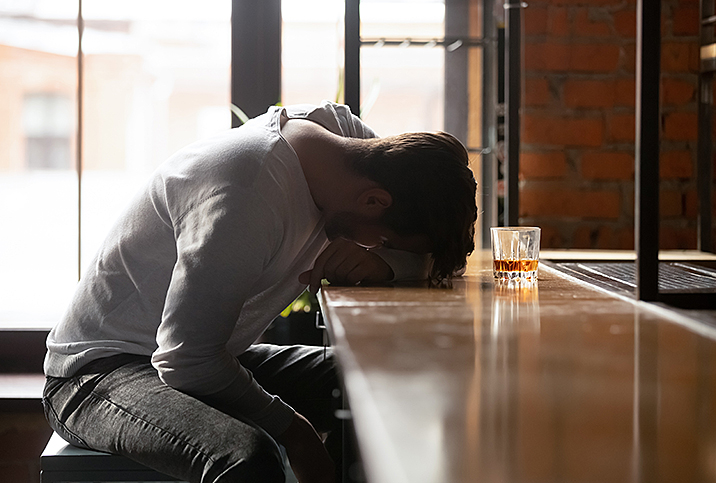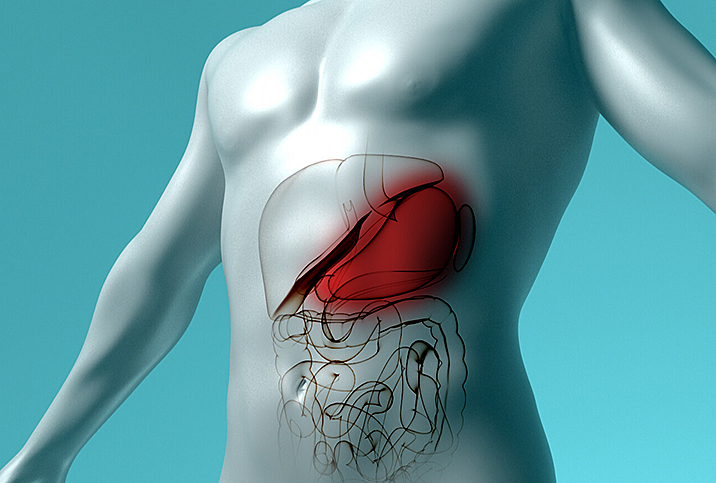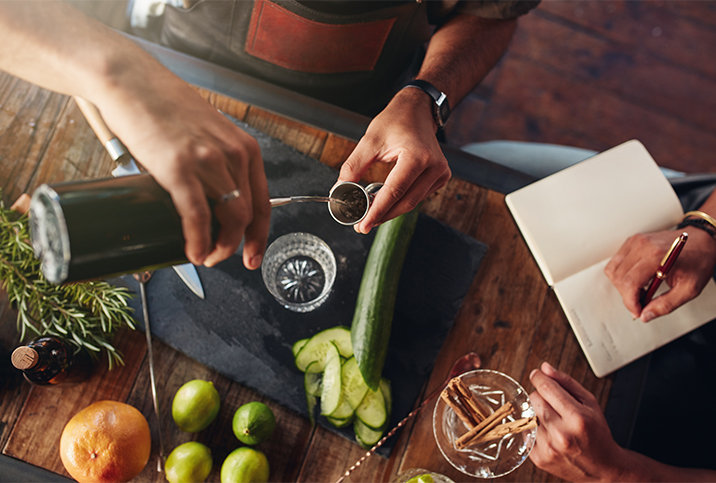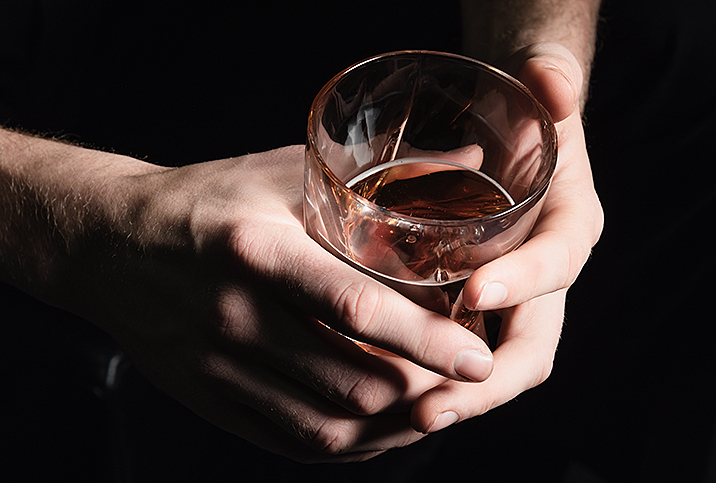Can a Beer a Day Keep the Doctor Away?
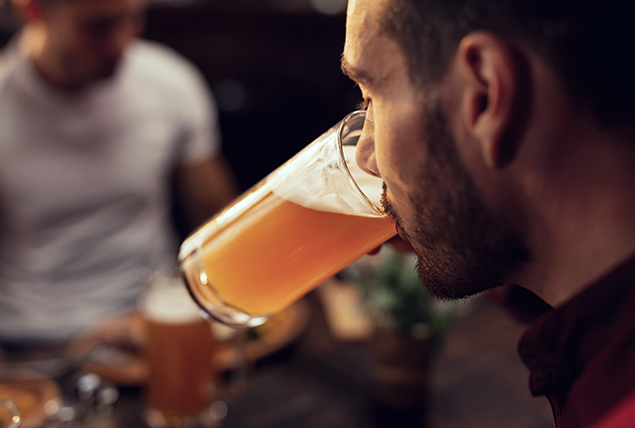
Good news, beer drinkers…well, maybe.
A recent study published in the Journal of Agricultural and Food Chemistry suggested that daily moderate beer drinking may contribute to a healthier, more diverse gut microbiome. Interestingly, the results were the same for men who drank nonalcoholic beer and for those who drank beer with 5.2 percent alcohol.
However, what does it mean in the larger context of our overall health? What are the caveats, and what the heck is the gut microbiome in the first place?
Listening to your gut
The gut microbiome is a system of trillions of microorganisms, including more than 1,000 types of bacteria, that occupy your gastrointestinal tract. The foods you eat and the medications you take alter this delicate balance and can lead to a number of gastrointestinal problems.
In recent years, research has shown that the health of the gut microbiome may be related to a number of other, more far-flung bodily functions, influencing your immune system, heart health, kidney function, body weight, sexual health and even mental health.
"Until maybe the past decade or so, I think a lot of people didn't realize that the gut microbiome is really a whole organ in itself," said Michelle Pearlman, M.D., a gastroenterologist and obesity medicine specialist based in South Florida. "When people think of bacteria or viruses or fungal organisms, they think they're bad. But, in fact, we're made up of more bacteria than other components. We have trillions of bacteria in our gut. We didn't really realize that before."
Just as the health of the gut microbiome may influence all sorts of other bodily systems, it works the other way, too. What goes into your body—including infections—can make an impact on your gut health.
"During the whole COVID situation, that became even more relevant because the gut is the largest immune organ," Pearlman said. "So when someone gets a bad infection, any sort of pathological viral or bacterial infection that causes harm to the host can really wreak havoc on the gut, and that can wreak havoc on the microbiome. A lot of people have struggled with that."
The gut's microbiome plays an important role in your ability to have intimate relations. Your gastrointestinal (GI) tract is lined with millions of neurons that send signals to your brain to help control emotional responses. Research has also shown that around 90 percent of serotonin—the hormone that controls your sex drive—is produced by gut microbes.
Aside from the performance anxiety you may feel when you're dealing with GI issues, an unbalanced gut microbiome may be responsible for decreased feelings of sexual desire.
Data published in 2021 in Translational Andrology and Urology suggests there may be a correlation between gut microbiota diversity and psychogenic erectile dysfunction (ED). The research indicated that ED subjects had significantly lower gut microbial diversity compared with that of control subjects.
Erectile dysfunction can be related to many factors, including emotional well-being, inflammation, neurological factors and sex hormones. Gut microbes may impact all of these factors.
The study: Let's talk beer
The researchers from Nova University Lisbon in Portugal looked at a group of 20 men who were moderate drinkers with an average age of 35. The men drank 11 ounces of beer with dinner each night, not being told whether it was alcoholic or nonalcoholic. After four weeks, based on blood and fecal samples, researchers found the men's microbiome diversity was significantly greater than it had been before.
"Nonalcoholic and alcoholic beer increased gut microbiota diversity, which has been associated with positive health outcomes and tended to increase fecal alkaline phosphatase activity, a marker of intestinal barrier function," the study authors wrote. "These results suggest the effects of beer on gut microbiota modulation are independent of alcohol."
Not so fast, beer lover
Before you head to the liquor store and load up on Portuguese beer, it's probably a good idea to break the study down further. As with most studies that put an item not usually considered great for our health in a better light, the devil's in the details. Notice the men in the study drank literally one beer each evening, and notice how few of them there were.
"The sample size is small," Pearlman said. "And it's also looking at people who already had moderate alcohol intake at baseline. I'm not sure they actually defined what moderate was, but already these people are exposing themselves to alcohol on a consistent basis. So it may not pertain to the majority of people."
A better way
That's not to say the study has no value or that its conclusions are incorrect. More research on how the gut microbiome works, in general, is needed and welcome, and perhaps with a broader sample size, future beer-related research may prove insightful.
For now, we should try to resist the pull of articles and one-off studies that offer "one cool hack" for better health.
"Food is medicine," Pearlman said. "When you feed the microbiome good nutrients and good food, that promotes a healthy microbiome. Fruits, vegetables, whole grains, nuts, seeds—a lot of it is common sense. It's also important that you have to do it on a consistent basis. It's not like 'an apple a day will keep the doctor away.' You have to eat more anti-inflammatory foods and really limit the pro-inflammatory foods."
Last call
Having an occasional beer probably isn't going to kill you.
By the same token, having one daily beer with dinner probably isn't the best way to unlock your optimal gut microbiome health.
Keep in mind, too, that when we talk about health, we're talking about a system: the hand bone's connected to the wrist bone and all that.
"Whatever's good for your organs is going to be good for this other organ, which is your microbiome; so really promoting the anti-inflammatory foods and limiting the pro-inflammatory foods," Pearlman said. "It doesn't mean you have to take it all out. It just means you have to be consistent on a daily basis in eating the good stuff and limiting the bad stuff. The other thing is limiting things that can damage it: not taking excessive antibiotics or excessive alcohol or smoking or being sedentary."
Maybe that's the best "one cool health hack" of all: Be healthier.












